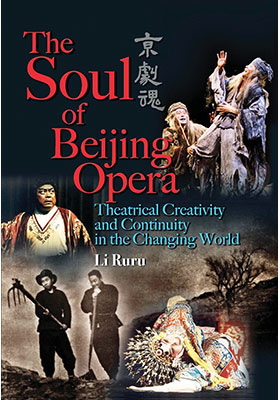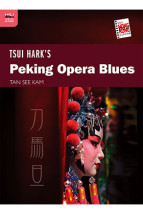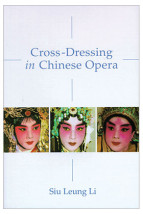The Soul of Beijing Opera
Theatrical Creativity and Continuity in the Changing World
(京劇魂:變化世界中的戲劇創作及連續性)
ISBN : 978-962-209-995-1
April 2010
368 pages, 6″ x 9″, 20 color and 8 b&w illus.
Ebooks
Any traditional theatre has to engage the changing world to avoid becoming a living fossil. How has Beijing opera—a highly stylized theatre with breath-taking acrobatics and martial arts, fabulous costumes and striking makeup—survived into the new millennium while coping with a century of great upheavals and competition from new entertainment forms?
Li Ruru’s The Soul of Beijing Opera answers that question, looking at the evolution of singing and performance styles, make-up and costume, audience demands, as well as stage and street presentation modes amid tumultuous social and political changes. Li’s study follows a number of major artists’ careers in mainland China and Taiwan, drawing on extensive primary print sources as well as personal interviews with performers and their cultural peers. One chapter focuses on the illustrious career of Li’s own mother and how she adapted to changes in Communist ideology. In addition, she explores how performers as social beings have responded to conflicts between tradition and modernity, and between convention and innovation. Through performers’ negotiation and compromises, Beijing opera has undergone constant re-examination of its inner artistic logic and adjusted to the demands of the external world.
“This book will act as a powerful introduction to the story of Beijing Opera over the course of the twentieth century with a particularly strong emphasis on the Communist period and its influence on contemporary performance. Using excellent oral history research and with a strong focus on practice and performance techniques, Li Ruru places the genre in both its historical and global context: not a timeless Chinese tradition, but a product of China’s turbulent twentieth century and the global interactions that were a key part of that history.” —Henrietta Harrison, Harvard University
“This meticulously researched and colourful account of the highly complex performance form, jingju, will be of interest to a wide constituency of theatre scholars and cultural historians. Writing from the unique dual perspective of ‘insider/practitioner’ and academic, Li Ruru deftly weaves oral and cultural histories together with detailed performance analyses, including a fascinating chapter on the secrets of jingju training. This book promises to raise significantly the profile of this Chinese total theatre for English-speaking audiences.” —Jonathan Pitches, founding co-editor of Theatre, Dance and Performance Training
“Li Ruru’s unique and valuable perspective combines the critical eye of the imaginative researcher with the intimate perspective of a true jingju insider—the daughter of one of the twentieth century’s leading female performers. Impeccably researched, passionate and personal, this aptly titled book provides readers with an exciting and thought provoking look at jingju history and performance practice through its focus on the lives and work of six controversial leading artists.” —Elizabeth Wichmann-Walczak, University of Hawai‘i at Manoa





